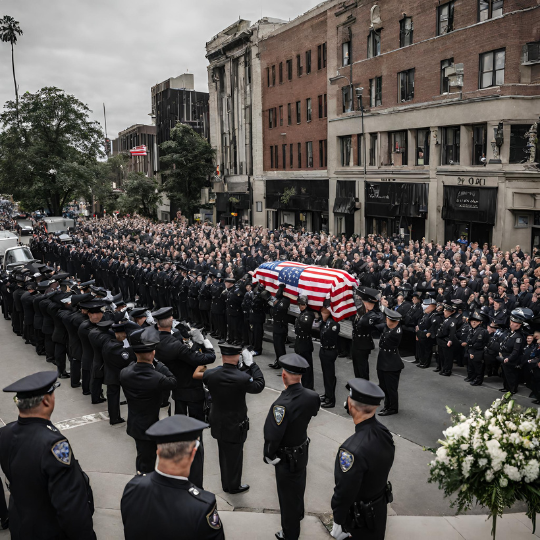Everything You Need To Know About Police Funerals
Police funerals are traditional and follow strict regulations. If you’re unsure of what to expect from a police funeral, you should know that there are funeral traditions that policemen and women follow. There are different types of funerals and order is followed while conducting them.
Here’s how it goes-
Types of police funerals
There are essentially two types of police funerals.
1. Line of duty death: This is a funeral organized for the police officer who has died during duty while serving his nation. A line of duty funeral is conducted with utmost respect and honor.
It’s also referred to as LODD and often calls for other police officers to attend the funeral from across different countries.
2. Non-line-of duty: A non-line-of duty type of funeral is organized when an officer has passed away but not because of the profession. Although, if the person was a member of the police force in whatever capacity, he/she/they will receive the same treatment from the department.
Process of holding a police procession or Order of police officer’s funeral service
Conducted with honor and gratitude, police processions follow an order of service. These may differ based on the religious and traditional practices of the family but largely stick to this order:
- Invocation: The service begins with a speech addressing the crowd present at the funeral and giving an introduction to the deceased officer’s past and credentials.
- Prayers: The leader of the service recites prayers to bring peace to the deceased and his/her/their family members. These prayers can be modified and changed to fit any religious beliefs.
- Hymns or Music: The family of the fallen loved one can pick hymns or music that means something special to them. Respectful and admirable songs are played for the deceased.
- Speakers: This part of the process involves calling different speakers on stage who will address the audience. Here, family members and friends can come up and read verses from the bible or deliver the eulogy. Close friends from the police force also contribute.
- Councilmen, bureaucrats and mayors will also join the stage and dedicate a speech or eulogy.
- 21-gun salute: After the speeches and eulogies have been delivered, a 21-gun salute is organized to commemorate the memories of the fallen loved one. The 21-gun salute can be replaced with a bell ceremony that acts as the same.
- Traditions: A guard marches towards the casket and removes the flag placed over it. The flag is folded carefully and passed down to the deceased’s kin and kith. After this, pallbearers will march towards the casket and respectfully lift it up and move towards the burial or cemetery ground.
Etiquettes and law enforcement funerals
Another important thing to remember before you attend a police funeral to follow the funeral etiquettes that the force expects out of you.
This includes your attire, honor and tradition, following a mood, and who gets to attend the procession.
The attire needs to be somber and dark. Bright attires are looked down upon. You will see the attendees from the force in uniform and attire that is appropriate for the funeral.
Following tradition and honor, the police force will move as a unit. You can interact with the members of the force but that comes with being mindful and respecting time and boundaries. The force attends the funeral to pay respects to the deceased and that’s their main goal. The mood for a police funeral has to be somber and reverent. Everyone’s focus is going to be on paying respects to the deceased.
Police honors for the deceased
Police honors are warranted when a police officer has died while performing his/her/their duties. This is the highest honor. If a police officer is killed while being off-duty, the arrangements will remain more or less the same but with minor differences in the service order. If a retired police officer has passed away, he/she/they will also receive a police funeral. The police force is a tightly knit community and police funerals are highly respected and disciplined services offered by the force.

![Upgrade to Premium Weight [18-gauge steel]](http://titancasket.com/cdn/shop/products/casketthicknesswithnumbers.png?v=1680642906&width=533)



